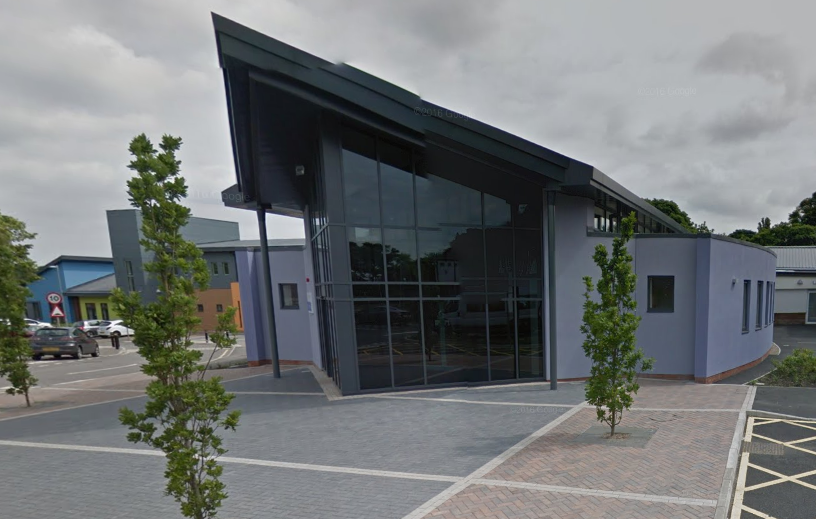Contact information
Address:
The Glades
Acklam Road Hospital
Acklam Road
Middlesbrough
TS5 4EE

Phone: 03000 132 000 option 7
Email: [email protected]
About the service
We work with young people up to 18 years of age with a diagnosed, suspected eating disorder or young people experiencing significant disordered eating.
This service provides specialised multi-disciplinary assessment, treatment, and evaluation of care for young people and their families. This leaflet provides information about what the service offers.
The service is made up of different professionals, including doctors, psychologists, mental health nurses, associate practitioners, occupational therapist, family therapist and dietitians.
We work three stages with you: referral, assessment, and treatment. An initial set of assessment appointments will be offered, which are explained further below.
Referral Process
The team operates an open access to service referral systems, including self-referrals. Please contact the team on the below contact details to discuss further.
The team operates a Duty Work System between the hours of 1pm to 5pm Monday to Friday. This allows for direct access to clinicians to facilitate referrals, case formulation, supervision and/or advice as required. Referrals are assessed immediately to understand the level of urgency and urgent action will be taken or advised as clinically appropriate in line with the national Access and Waiting Time (AWT) standard. We aim to offer routine initial assessment within 28 days and an urgent assessment within 7 days of an urgent referral. If we feel immediate support is required, you will be directed to the local A& E for medical attention.
Assessment Process
Every referral that is accepted into the team is offered an initial assessment appointment; this will include:
Family/dietetic
Two members of staff will meet with the young person and their parents or carers.
We will talk about the current difficulties and gather some background information. If required a dietitian will carry out an assessment to look at dietary intake and discuss food related issues in detail.
Individual
This is time for the young person to spend on their own giving them the opportunity to talk alone. They may also be asked to complete a questionnaire about their eating behaviours and other aspects of their life.
Routine Outcome Measures (ROMs) and Current View is completed as part of the initial assessment process to identify the level of need and indicate the appropriate care pathway.
Physical monitoring
Their blood pressure, pulse and temperature will be checked along with any other necessary physical assessment. Blood samples will be taken to allow for blood tests to be carried out. Weight and height will also be measured.
Psychiatric and/or paediatric
An appointment to meet with a psychiatrist within our service or a local paediatrician may be required if specific difficulties need to be discussed or addressed.
Post Assessment Discussion
Post assessment discussion will be offered following this appointment either by telephone or face to face. This will cover what has been talked about together, the multidisciplinary suggestions and ideas will be shared, and we will decide together on the next best steps to provide the support for the young person and their family/carer.
Treatment
Allocation
All children and young people will be allocated a Key Worker. Care for the children and young people will be regularly reviewed and, where appropriate, review meetings will be arranged.
The treatment offered will follow the appropriate care pathway. There are several care pathways within CAMHS that are all underpinned by NICE (National Institute for Health and Care Excellence) guidance, clinical and evidence-based practice. Where appropriate, an evidence-based package of care is offered in collaboration with the children, young people, and their families/carers. Treatment is delivered by trained and supervised clinicians.
Treatment
All treatment is delivered in line with the Access and Waiting Time standard for eating disorders, with appropriate governed psychological therapy being delivered within required time frames by appropriately trained and supervised clinicians. This is strictly monitored by local, Trustwide and national reporting structures.
Following the initial assessment period, the type and length of treatment offered will be determined by the complexity and severity of assessed need. These may include a child or young person being seen for individual therapeutic intervention, family work, family/carer support or group interventions. Examples of treatment and care packages are detailed within eating disorders pathway.
When attending appointments, anything that is discussed is confidential. There are times when we are required to share information, for example if we are made aware of anyone being at risk of harm. If we are required to pass this information on, we will discuss this with the young person and/or family.
Students
The Trust is committed to supporting the learning needs of students, however, if the individual does not want students involved in their care, they can inform a member of staff.
L451, V5, 19/01/2024 (Archive: 18/01/2027)